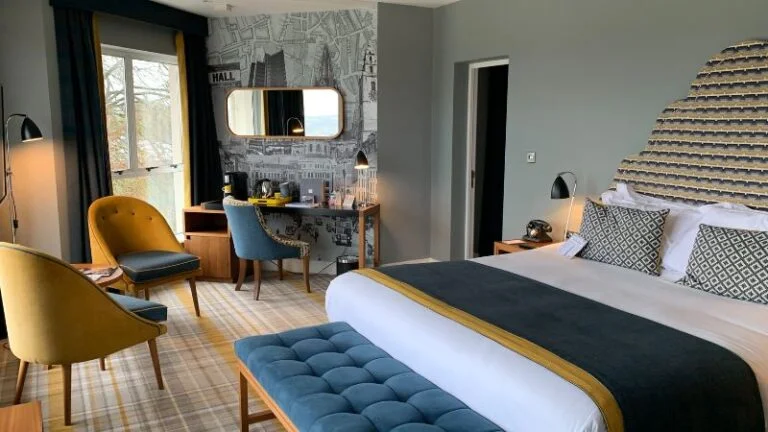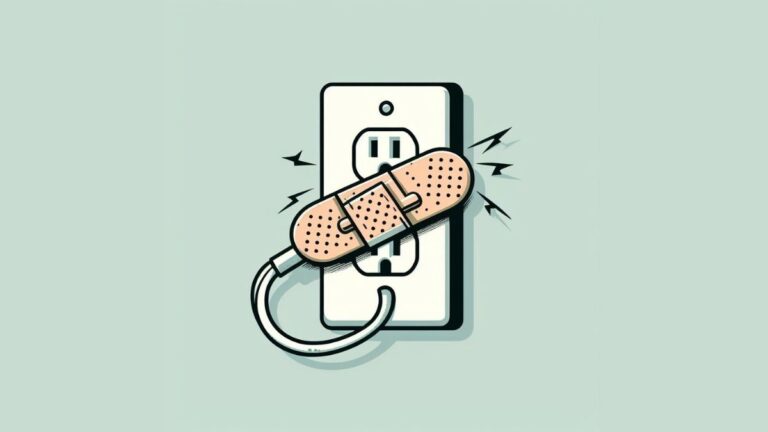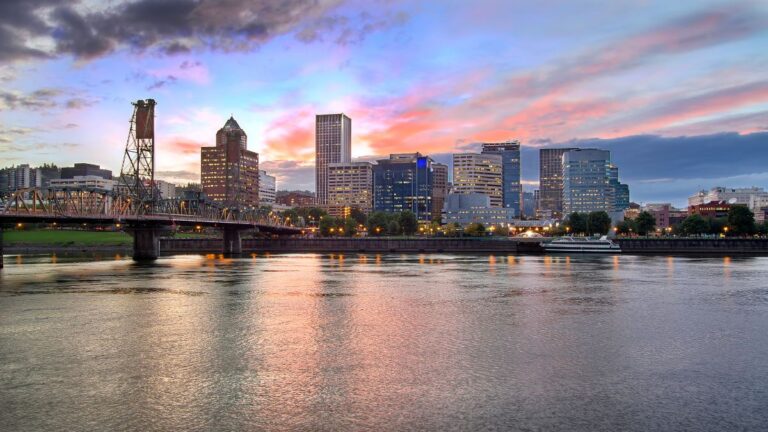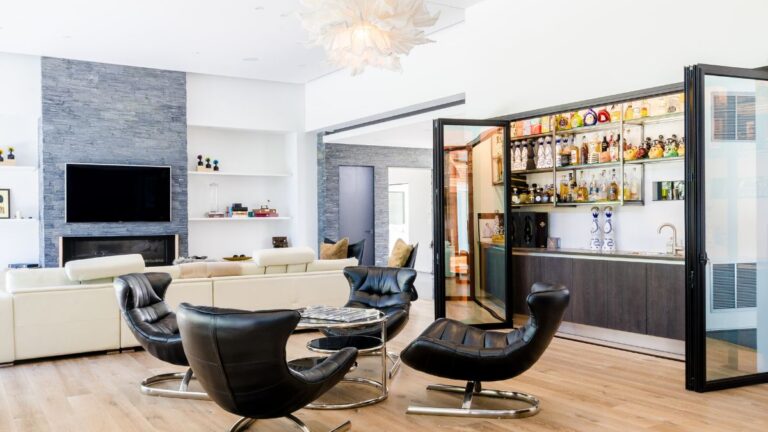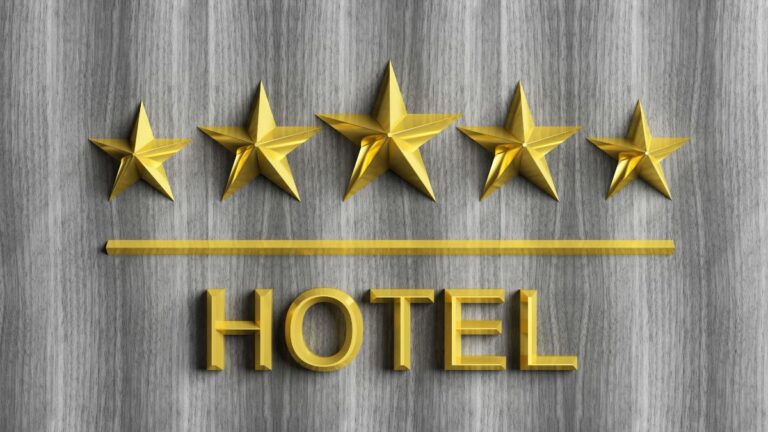Is Hotel Tap Water Safe To Drink? Read Before You Do
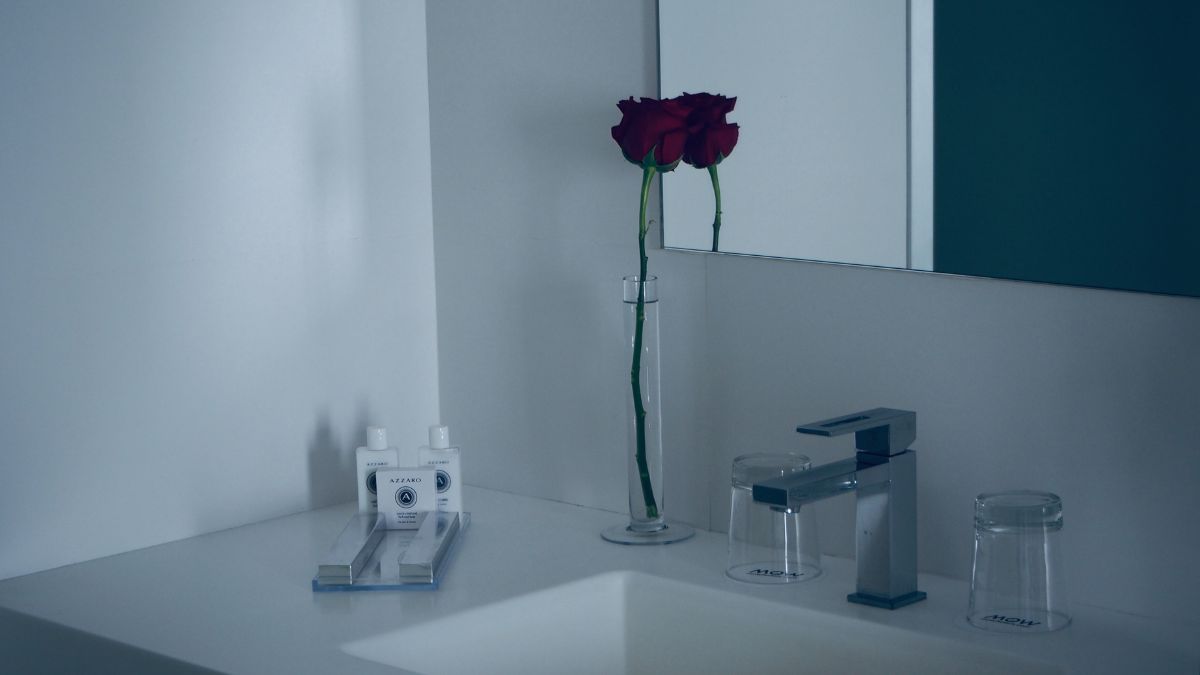
As participants in Amazon Associates and other programs, we earn from qualifying purchases. This comes at no additional cost to you. For more details, see our Affiliate Disclosure.
When you’re away from home, nestled in the comforts of a cozy hotel room, the last thing you’d want to worry about is whether the water flowing from the tap is safe to drink. Yet, the question is not so easily dismissed. The safety of tap water in hotels can vary greatly depending on numerous factors, and understanding them could save you from potential health problems. So before you take that refreshing sip, let’s explore the safety of hotel tap water.
Factors Influencing the Safety of Hotel Tap Water
Numerous factors can influence the safety of tap water in a hotel. Some of the major factors include:
Source of Water: The primary source of water can play a pivotal role in its safety. Water may come from municipal supplies, wells, or natural sources like springs or rivers. Municipal water is usually treated and regulated, but the quality can vary. On the other hand, well water or water from natural sources may not undergo strict purification, thereby raising the potential for contamination.
Local Water Treatment Processes: How the local water supply is treated can also affect its safety. Processes such as chlorination, fluoridation, and the use of other disinfectants can impact the quality of the water. If these processes are not adequately managed, it could result in unsafe drinking water.
Hotel’s Water Treatment System: Hotels often have their own water treatment systems, especially if they use a private water source. The effectiveness of these systems can greatly influence the safety of the hotel’s tap water.
Infrastructure: The age and condition of the water infrastructure, including pipes and tanks, can also affect water safety. Older, corroded pipes can leach harmful substances into the water, while poorly maintained tanks can allow bacterial growth.
Hotel’s Maintenance Practices: Regular cleaning and maintenance of water storage and distribution systems within the hotel is crucial for maintaining water safety. Poor maintenance practices can lead to a buildup of bacteria or biofilms.
Contamination Risks: Finally, local environmental factors can also pose a risk. For instance, if the hotel is located near agricultural or industrial sites, there may be a higher risk of water contamination from chemicals or waste.
While hotels have a responsibility to provide safe, drinkable water to their guests, various factors can influence the safety of the water. It’s always a good idea to check with the hotel about their water source and safety practices if you’re unsure.
Location, Location, Location: How Geography Affects Tap Water Safety
Geography can play a crucial role in determining the safety of tap water. Different regions around the world have different water treatment standards, water sources, and environmental considerations. Here’s how these geographic factors can affect the quality and safety of tap water in hotels:
Water Treatment Standards: Countries vary greatly in their standards for water treatment. Developed countries generally have stringent regulations and advanced water treatment facilities that ensure tap water is safe to drink. On the other hand, developing countries may have less stringent regulations and less reliable water treatment facilities, potentially leading to tap water that is not safe for consumption.
Local Water Sources: The source of a region’s water can also impact its safety. For instance, areas that rely on well water or surface water (like rivers or lakes) may have higher risks of contamination from agricultural runoff, industrial waste, or natural contaminants. Meanwhile, areas that use deep groundwater or desalinated seawater may have different types of risks, like high mineral content.
Environmental Factors: The local environment can also influence tap water safety. Regions prone to flooding may face a higher risk of water contamination, while areas with heavy industrial or agricultural activity might have issues with pollutants. Similarly, regions with high natural mineral content in the ground (like arsenic or fluoride) can result in these substances appearing in the tap water.
Climate: Climate can indirectly impact tap water safety as well. Warmer climates can encourage the growth of bacteria and other microorganisms in water supplies, particularly if the water is not treated properly.
Infrastructure Quality: The state of water supply infrastructure also varies depending on geography. In places with older or poorly maintained infrastructure, there’s a higher chance that harmful contaminants could leach into the water from corroded pipes or that untreated water could enter the supply due to leaks.
In essence, while all hotels have an obligation to provide safe drinking water, the geographic location of the hotel can significantly influence the measures needed and the potential issues that might arise concerning tap water safety.
The Hotel’s Role in Ensuring Water Safety
The hotel plays a critical role in ensuring the safety of the water it provides to guests. Here are some of the key responsibilities and actions that hotels typically undertake:
Regular Testing: Hotels should regularly test the quality of their water supply. This involves checking for contaminants, harmful bacteria, and ensuring the pH level is within a safe range. The frequency of testing can depend on local regulations and the source of the hotel’s water.
Proper Water Treatment: If a hotel sources its water from a well or other private source, it is generally responsible for treating that water to make it safe for consumption. This can include filtration, disinfection, and sometimes additional treatments depending on the water’s initial quality.
Maintaining Infrastructure: A hotel needs to ensure its internal water distribution system – including pipes, tanks, and fittings – is kept in good condition. This can prevent issues such as corrosion or bacterial growth, which could contaminate the water.
Clear Communication: Hotels should provide clear information to guests about the safety of their tap water. If the water is not safe to drink, hotels should provide this information clearly in rooms and common areas. They should also provide alternatives for drinking water, such as bottled water or water dispensers.
Emergency Response Plans: In the event of a water-related issue, such as contamination from a natural disaster or a failure in the water treatment process, hotels should have emergency plans in place. This could include providing bottled water to guests, arranging alternative water sources, or coordinating with local health authorities.
Training Staff: Hotel staff should be trained in water safety practices. This can help ensure that they understand the importance of these practices and can respond appropriately to any water safety issues.
By fulfilling these responsibilities, hotels can play a critical role in safeguarding the health of their guests and ensuring their stay is enjoyable and worry-free. However, it’s important to remember that the specific practices can vary depending on the hotel’s location and the local water supply.
Potential Risks Associated With Unsafe Tap Water
Unsafe tap water can pose a range of health risks, especially when consumed. The severity and type of risks largely depend on the contaminants present in the water. Here are some potential health risks associated with unsafe tap water:
Gastrointestinal Problems: Water contaminated with bacteria, viruses, or parasites can cause gastrointestinal illnesses. Symptoms can include nausea, vomiting, diarrhea, stomach cramps, and fever. This is commonly associated with waterborne pathogens like E. coli, Giardia, and Norovirus.
Chemical Exposure: If water is contaminated with chemicals, such as heavy metals, pesticides, or industrial waste, it could lead to long-term health effects. For example, lead exposure can affect the nervous system and brain development, while long-term exposure to certain industrial chemicals can increase the risk of cancer.
Nitrates and Nitrites: High levels of nitrates and nitrites, often from agricultural runoff, can be particularly harmful to infants, interfering with the blood’s ability to carry oxygen. This can lead to a condition called methemoglobinemia, or “blue baby syndrome.”
Fluoride Overexposure: While fluoride is often added to water supplies to promote dental health, too much fluoride can lead to dental fluorosis (discoloration or pitting of teeth) in children and skeletal fluorosis (a bone disease causing pain and damage to bones and joints) in adults.
Legionnaires’ Disease: This is a severe form of pneumonia that people can catch by inhaling water droplets containing Legionella bacteria. It’s especially a risk in large water systems, like those in hotels, if the water is not properly managed and maintained.
Water-Borne Diseases: In some parts of the world, water can carry diseases such as cholera, typhoid fever, and hepatitis A. These diseases can cause severe illness or even death, particularly in those with weakened immune systems.
It’s crucial to remember that while these risks can sound alarming, many places have strict regulations and treatment processes in place to ensure tap water safety. However, in areas where water safety is questionable or if you’re unsure about a hotel’s water safety practices, using bottled water or other safe water sources for drinking and oral hygiene is a wise precaution.
Bottled Water vs. Tap Water: A Comparative Analysis
In the battle of hydration sources, two contenders often rise to the top – bottled water and tap water. Both options come with their own sets of benefits and drawbacks, and understanding these can help you make an informed decision. Factors such as safety, cost, accessibility, and environmental impact play a crucial role in determining which of these two might be the better choice for you, especially when you’re staying in a hotel.
The Case for Bottled Water
Bottled water is often the go-to choice for many travelers. Its primary advantage lies in its reliability. Bottled water is typically sourced from protected springs or public water systems and undergoes a rigorous purification process. This process often includes steps like reverse osmosis, distillation, or ultraviolet light treatment to remove potential contaminants. As a result, it’s generally considered safe to drink, regardless of where you are.
Moreover, bottled water is incredibly convenient. It’s readily available in most places around the world, making it a popular choice for travelers, particularly in areas where tap water safety is questionable. However, this convenience comes at a cost. Bottled water is significantly more expensive than tap water.
Plus, there are environmental concerns tied to its production and disposal. The energy required to produce and transport bottled water, coupled with the pollution caused by improper disposal of plastic bottles, contribute to its substantial environmental footprint.
The Case for Tap Water
On the other hand, tap water presents an easy and economical way to stay hydrated. In many developed countries, tap water is subject to stringent regulations and thorough treatment processes to ensure its safety. It’s tested frequently for a range of contaminants to maintain its quality. Plus, drinking tap water is essentially free, making it a cost-effective choice for hydration.
Beyond the economic aspect, tap water has a significantly lower environmental impact compared to bottled water. It doesn’t require the use of plastic bottles, and it needs less energy for treatment and distribution compared to the processes involved in producing bottled water.
However, the safety of tap water can be variable, particularly when traveling. In some regions, tap water might not be safe to drink due to inadequate treatment or contamination risks. Additionally, the taste of tap water can differ based on the source and the treatment process, which may not appeal to everyone.
Tips for Assessing Tap Water Safety in Hotels
Ensuring the safety of tap water during your hotel stay is crucial to avoid health risks. Here are some tips to help you assess the safety of tap water in hotels:
- Ask the Hotel Staff: One of the easiest ways to determine if the tap water is safe to drink is by simply asking the hotel staff. They should be able to provide information on the water source, treatment, and testing.
- Check for Clarity: Safe water should be clear and colorless. If the water from the tap is cloudy, has particles, or any unusual color, it’s best not to drink it.
- Smell the Water: The water should not have a strong odor. A strong chlorine smell could indicate recent treatment, but other odors could signify contamination.
- Taste the Water: While taste can be subjective and varies depending on the source and treatment, an unusual taste can sometimes indicate a problem.
- Research Local Water Quality: Researching the general water quality in the area can provide insight into whether the tap water is typically safe to drink. Reliable resources might include travel advisories, health department reports, and local news outlets.
- Use a Test Kit: Portable water test kits are available and can test for a variety of common water contaminants. These can be especially handy if you’re staying in a place for a long time or if you’re traveling in areas known for water quality issues.
- Boil the Water: If in doubt, boiling water is an effective way to kill most bacteria, viruses, and parasites. However, it does not remove chemical contaminants.
When it comes to drinking water, it’s better to err on the side of caution. If you’re unsure about the safety of the tap water, consider drinking bottled water or using a portable water purifier.
What To Do If You Are Unsure About Your Hotel’s Tap Water Safety
If you find yourself unsure about the safety of the tap water at your hotel, there are several steps you can take to ensure you stay hydrated without compromising your health.
First and foremost, you can speak directly to the hotel staff. They should be able to provide you with the most current and relevant information about the hotel’s water supply, including where it comes from, how it’s treated, and if it’s safe to drink. Don’t hesitate to ask – it’s better to be safe than sorry.
If the hotel staff can’t provide you with a satisfactory answer or if you still have doubts, you may consider using bottled water for drinking and oral hygiene tasks such as brushing your teeth. Bottled water is a safe and reliable alternative as it typically undergoes strict purification processes before it’s sold.
In certain situations, particularly when you’re traveling in regions where water safety is a known concern, you might want to invest in a portable water purifier or water purification tablets. These devices or tablets can help eliminate many of the bacteria, viruses, and other contaminants that might be present in unsafe tap water.
In addition, boiling water is a tried-and-true method to kill most pathogens. If you have access to a heat source, such as a kettle or a stove in a hotel suite, you can boil tap water for at least one minute to make it safe to drink. It’s important to note, however, that boiling water won’t remove any chemical contaminants that may be present.
Finally, keep an eye on updates and advisories from local health departments or tourism boards about water safety. They can provide valuable information, especially in the case of a sudden change in water quality.
Alternatives to Drinking Tap Water in Hotels
Whether you’re traveling to a location with known water quality issues or you’re simply uncertain about the safety of the tap water at your hotel, it’s important to know your alternatives. Several options exist to provide you with safe drinking water, ensuring you stay hydrated while minimizing the risk of consuming potentially harmful contaminants.
- Bottled Water: Often considered the easiest and most convenient alternative, bottled water is typically safe to drink as it undergoes strict purification processes. However, it does have an environmental impact due to plastic use and can also be more expensive than other options.
- Portable Water Filters/Purifiers: These are handy devices for travelers who frequently visit areas with questionable water quality. They can filter out most pathogens and some can even remove heavy metals and chemicals. It’s important to choose a filter or purifier suitable for the specific contaminants you’re likely to encounter.
- Water Purification Tablets/Drops: An effective and portable option, these tablets or drops use chemicals like iodine or chlorine to kill most pathogens in the water. Keep in mind that they typically can’t remove chemical contaminants and might leave a residual taste.
- Boiling Water: If you have access to a kettle or stove, boiling water for at least one minute can kill most types of pathogens. It’s a reliable method but won’t remove chemical contaminants.
- Flavored or Mineral Water Drinks: These provide hydration with a twist of flavor. Be sure to check labels for added sugars or artificial flavors if you’re mindful about your diet.
Ensuring you have safe drinking water is essential when traveling, and these alternatives can help you achieve that when the safety of the hotel’s tap water is in question.

